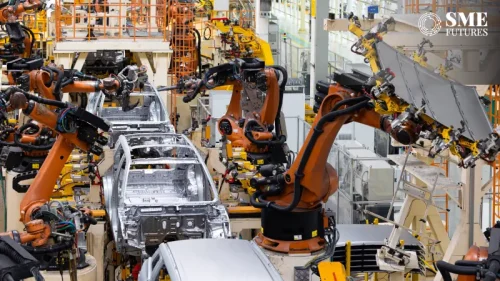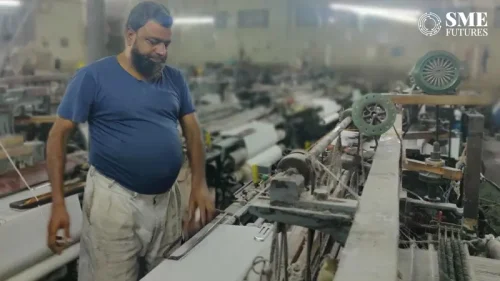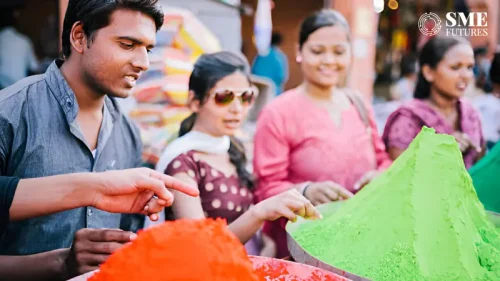COVID-19 pandemic has severely affected our economy, routine lives, and health. All the facets of these aspects of life are seeing extensive changes. While most of us are struggling to make sense of the situation, some relentless entrepreneurs have responded well with respective innovations in their fields.
The coronavirus outbreak has triggered innovations by Indian entrepreneurs that can handle challenges posed by the pandemic. From robots to automatic hand sanitizers to DIY screening tools, these new techniques and innovations are an answer to human ingenuity during these testing times.
Launched in early April, Aarogya Setu app is one of the best examples in Indian innovations. The app leverages GPS and Bluetooth techniques to inform people whether they are at risk of exposure or not. Prior to this, tech giants Google and Apple had launched a similar initiative. Start-ups are also aiding public information campaigns on coronavirus by developing technology platforms that disseminate notifications by state and central governments.
An app called GoK-Kerala Direct was launched by Kerala state government using a platform developed by QKopy. It sends COVID-19 updates and travel information in English and Malayalam via phone notifications. A tweet by Invest India on April 29, confirmed the launch of GoK Direct app in partnership with QKopyOnline. Some similar innovations relevant for these days are listed below.
Device Tracking Social Distancing and Occupancy
Veda Labs, a retail analytics startup based in Delhi has created COVID-19 suite using AI and machine learning. The solution COVID-19 suite ensures consumer safety by keeping a check on measures like social distancing, temperature, mask detection, and occupancy levels of facilities for retail businesses. “This means our solution can measure social distancing using camera feeds,” explains Veer Mishra, Co-founder of the startup.
Explaining the three features thoroughly he tells, “The entire suite is a compilation of three solutions. First of them is occupancy alert which reflects the occupancy a store, an office, or a firm can withhold through a screen at the entrance of premises. After reaching a maximum threshold, it turns red and issues an alert.”

“Second is a tablet device which measures temperature and detects masks. Unless your body temperature is normal and you are not wearing a mask, the gate will not open due to an alert. The third solution measures the social distancing among people present on a floor and analyses the violation of the norms,” he further adds.
According to Mishra, the response has been well so far. The startup has tied up with a Swedish automation firm to sell the product internationally. In India too, they have set up partnerships to start pilot utilisation with big brands. It includes some of the major automobile giants and luxury coffee chains.
Norm Adherence Check by JARVIS
A recent report by John Hopkins University states that wearing a mask on face can reduce the spread of COVID-19 infection by 60 per cent. This is more effective than measuring a body temperature which can identify only 20 per cent of cases. But wearing a mask on face is a new habit and human mind is always reluctant for a change.
Any organisation such as WHO (World Health Organisation), MoHFW, or your organisation can only create standard operating procedures (SOPs) to prevent further spread of COVID-19 but to ensure implementation of guidelines is a challenge. To answer this, Gurgaon based AI start-up Staqu has innovated unique video analytics technology for finding and tracking the spread of virus.
Atul Rai, Co-founder and CEO at Staqu says, “We can’t put a person behind every single employee to enforce the guidelines as it has its own resource limitations. This limitation brings us to JARVIS, an automated solution to monitor the adherence of SoPs in premises without any biases or lags.”
Incubated by NASSCOM CoE-IoT, the startup particularly develops products for domestic security forces. The proprietary video analytics technology JARVIS developed by the firm is now modified for COVID-19 oriented challenges. The solution keeps a check on hygiene, social distancing, contact-tracing, cloud storage, and other standard safety protocols.
Rai tells us that JARVIS is currently live on 10,000 cameras which is the largest number in the country. He adds, “From governments to fortune 500 companies and smart city projects, all are using JARVIS at their various facilities. Our future roadmap is to democratise the video analytics i.e. to provide security, safety, and reach to every customer from various domains.”

A Dashboard that Tracks COVID-19 Patients
Utkarsh Singh and Ayushi Mishra, alumni of John Hopkins University have developed a live dashboard to track COVID-19 patients and their activities. They got this idea during a conversation with a client about ways to track global spread of the contagion. Then, they converted it into a dashboard solution.
Utkarsh Singh, CEO and Co-founder at DronaMaps tells, “During our Punjab visit for an active project (for mapping the road network of the state), client casually mentioned a dashboard developed by Johns Hopkins University to track the global spread of the virus. We embarked on this and got a day to create a public-facing dashboard for India. Thereafter, we developed a district-wise dashboard for Punjab specifically.”
Over the course of time, its scope of work increased to geo-fencing of quarantined patients, cluster analysis of the spread, location tracking with CDR (call records data), and predictive analysis for spatial and epidemiological spread based on these parameters.
The solution is now implemented across six Indian states namely Rajasthan, Punjab, Haryana, Chhattisgarh, and Meghalaya. More states are inducting it in their systems now. The dashboard got six million views in first few days of its public launching.
According to Utkarsh, the aim of command and control center dashboard solution is to equip administrative bodies with reliable data. He professes, “We ensure that everyone from a chief minister’s office to the teams on ground now have one integrated source of information regarding state of affairs and resources available.”
The dashboard has influenced the on-ground strategy and has defined containment zones for Rajasthan and Punjab. In an incident, the dashboard noticed tracks of fifty positive patients in a dense market area of Jaipur and recommended it as a containment zone.

He further tells, “Similarly in Punjab, the containment areas have been defined using the geo-location of positive patients, home quarantine clusters, population density and the demographic data. This has yielded a block-wise implementable containment criterion.”
Suspected cases are constantly monitored through social media or VLR (call records). This ensures that officials are aware of the places they could have visited. Thereby, people who have been in close physical proximity of the patient could be traced by detecting the mobile phones close to the patient’s phone.
He asserts, “In addition to this, predictive spatial analysis based on granular spatial and temporal data can be used to estimate which areas would need additional resources. This analysis also includes localised calculations of Ro and doubling time. These can be used to estimate the healthcare infrastructure requirements in Punjab.”
Screening for COVID-19 on Your Own
An app would now help you screen yourself for COVID-19 or pneumonia based on the sound of cough. The Hyderabad based start-up Docturnal has re-designed its TB screening tool to prescreen COVID-19 suspects and to diagnose patients who need to undertake the RT-PCR tests.
Speaking to SME Futures, Arpita Singh, Founder tells, “Given the current unprecedented global crisis, we have developed CoVawe. It is a pre-screening tool to identify high risk in a subject of COVID-19. Hence, through this mass identification can be done and the traffic towards health centers can be channelised.”
CoVawe can screen cough sound for COVID-19 and Pneumonia with help of biomarkers (SPO2 and RR). It is available in both DIY and clinical-setting variants. In addition to this, its flagship product, TimBre screens cough sound for Pulmonary Tuberculosis and Chronic Obstructive Pulmonary Diseases in a clinical setting.
The idea behind the development of this solution is to simplify health while making it accessible for everyone. It also aims to find active cases rapidly with minimal or no infrastructure. Singh further adds, “Very often, it is the healthcare implementation that falls short of reaching out to everyone and the affordability of existing methods is a big hurdle too. TimBre and CoVawe are ideal solutions to address these issues.”

To make their products more relevant in these testing times, the startup made innovative changes to their existing solution. Singh elaborates, “Given the infectious nature of the contagion, we have made certain changes to our strategy with the solution. Firstly, we made it available as a DIY variant. Secondly, we have introduced two more biomarkers namely Oxygen Saturation and Respiratory Rates (built in accelerometer of phones) to help us in providing accurate results.”
The start-up’s current plan is to deploy existing products with solution and then manufacture the required hardware in another one year. Singh says, “We have just started working with two organisations in Indonesia and Uganda for deploying our solution. Now, we are looking forward for deployment in five other regions. We have therefore received good reception for the solution and its potential impact.”
Usage of COVID-19 Robots to Curb Virus Spread
Most common challenge for administrators and authorities is to curb the spread of virus. It is particularly daunting at places such as airports, hospitals, and bus stations where public gathering is more. In such scenario, human beings become more susceptible to contract the virus.
ASIMOV Robotics, a Kochi based startup hence thought of deploying COVID-19 robots at public places. The company deployed KARMI-Bot at Ernakulum government medical college. This robot relieves healthcare workers by serving food and medicines to coronavirus patients.

This robot can carry 25 kgs of load with speed of 1 min per sec, can perform UV based disinfection and detergent spray, and can conduct video calls. The aim was to limit the interaction between COVID-19 patients and healthcare workers along with addressing the shortage of PPE (Personal Protective Equipements) kits by minimising its usage.
Jayakrishnan T, CEO at ASIMOV said that rising concerns of public towards preventive measures against the novel coronavirus has prompted the solutions-provider companies to go for such a drive. The use of robots in the campaign is welcomed extensively considering the propensity of the virus to spread though human contact.
The startup aims to incorporate contactless routine temperature checking and automated charger docking to KARMI-Bot once the lockdown ends. In a similar effort to prevent doctors and other medical staff from getting infected, a teacher at Tripura University has also made a robot from scrap material.
This robot too helps in delivering food and medicines to COVID-19 patients. The robot named COVID-19 Warbot is developed by Dr Harjit Nath, an assistant professor of the Chemical and Polymer Engineering department in the university. The robot is regulated by a transmitter and a receiver taken out of a toy car which can work for 90 minutes on full charge.

The robot with three 0.5 HP motors and rechargeable batteries can carry up to 15 kg of food and medicines on a plastic tray mounted on top of it. The IIT-Guwahati pass-out confesses, “There is a shortage of PPE kits and frontline health workers are at the risk of getting infected. Such robot will certainly help to minimise the risk for them.”
Disinfect Using UVGI Technology
Disinfecting surfaces is an effective way to prevent further spread of virus these days. But it becomes a herculean task when surfaces are large. To tackle this trouble, a Delhi based startup P8sense Technologies came up with solutions based on Ultraviolet Germicidal Irradiation (UVGI) technology.
Startup claims that solutions developed with proprietary UVGI technology can kill COVID-19 virus. Describing the product, Founder, Abhinav Saksena says, “We have developed Viro8, which sanitises centrally air-conditioned buildings like offices and hospitals to curb the infection through air. Another solution is ViroSafe, which sterilizes the grocery items, food items or any object to stop the transmission through surfaces.”

He adds further, “With an experienced team in HVAC (Heating, ventilation and air conditioning) and IoT (Internet of Things), we came up with these innovations through IoT solutions based on UVGI technology. We have developed these solutions in house to kill SARS COVID-19 virus.”
The product is based on UVGI principle of decontamination of surfaces and air. Hence, it is effective in the current scenario. “It works instantaneously without the use of any chemicals and involves a quick process of disinfection which is now popular worldwide,’ claims Saksena.
The startup has been getting good response from financial and banking sector for Virosafe. Along with this, Viro8 has already been deployed at several government premises. They are now getting traction from overseas and have sizable number of enquiries from Dubai and Singapore.
Automatic Ventilators and Hand Sanitizer Dispenser
As corona cases are rising rapidly, individuals should opt for preventive measures. To curb the spread further and to help the frontline staff, two siblings have created prototypes of ventilators and automatic sanitizer dispenser that can detect hands from a range of 2 cms.
Under the supervision of an Edutech start-up RoboChamps, the duo of brothers Vinayak and Kartik Tara aged 8 and 12 years old have developed automatic water or sanitizer dispenser. It aims to minimise the contact between healthcare workers and COVID-19 patients.
Created at a bare minimum cost of Rs 850, the prototype can be installed at hospitals, vegetable mandis, kirana stores, police stations, and even police vans. The prototype works in the way an automatic tap works.
RoboChamps, the guiding inspiration for these kids is aiming to deliver many units at once and has sought the support of Indian government. Further, the kids have created automatic ventilators for helping healthcare workers by changing manual ventilators available in market.
A balloon like structure is compressed by a motor between two wooden walls (acting as hands) set at a speed and time in this prototype. The ventilator is thereby connected to circuit and interfaced with mobile app so that patient’s health can be monitored closely. The working prototype is tested and proven to be successful. It can prove to be extremely helpful for medical staff and hospitals.

The sibling duo conceptualised, designed and built the automated machines under the guidance of Akshay Ahuja, Founder, RoboChamps. Speaking about the automated devices, Ahuja says, “The model developed by our students is completely unique as we have converted manual ventilators into automatic. But the process will remain same which is to pump the balloon, and to use two wooden walls instead of hands to avoid human touch.”
Contactless Health Device
Contactless health monitoring devices are becoming prevalent these days to keep a check on vital systems of body. Launched in mid 2019, Dozee is a brainchild of Mudit Dandwate and Gaurav Parchan. It is made by Bengaluru based startup Turtle Shell Technologies.
The device Dozee provides continuous respiration rate wirelessly and without any technical expertise. One must put the device under the mattress or under the chest while sleeping. Describing the device, Mudit Dandwate, CEO tells, “Dozee records micro-vibrations produced by our bodies from heartbeats, breathing, movements, snoring, and muscle twitches.
He further adds, “These vibrations are then processed by our highly curated and extensively tested algorithms and converted into meaningful health markers which you can see on the app.” The device is being used in three ways currently. The remote ward monitoring system helps in keeping nurses or doctors safe by providing remote access to patient’s health data on a single dashboard.
Secondly, Dozee is recommended for a COVID-19 patient with mild symptoms for 15 to 17 days. Doctors get a remote access to patient’s data through it during these days. It also helps in knowing the deteriorating condition of a patient well in advance. Thereafter, it helps in managing requirement for ambulance services, availability of hospital beds etc.
Thirdly, the device also helps in long term monitoring of at-risk individuals. It can monitor elders and critical care patients at home. At the same time, doctors or clinicians can earn money through telemedicine in the absence of their regular practice.
Available online, Dozee has been backed by Qualcomm, Department of Biotechnology – Govt of India, and Bill & Melinda Gates Foundation. These renowned organisations are supporting its product development and acceleration. Dandwate claims, “Around more than 2000 patients are being monitored at home, while more than 300 patients are being monitored in institutional settings currently in India through it.”

Collective Efforts to Combat Virus
The collective efforts of India Inc, government and educational institutes are acting as a catalyst for innovations that can combat coronavirus. In addition to that, intermediary organisations of educational institutions such as startup incubators are also fueling innovation drives. For examples, Action COVID-19 team (ACT) has announced Rs 100 crore grant as a funding source for innovative startups or NGOs that may help in combating the virus.
Furthermore, various open challenges by government bodies are inviting startups to develop solutions. T-HUB, Kerala Startup mission, Department of Science and Technology- CAWACH, and MeitY has opened innovation challenges against coronavirus. Hence, these crowd-sourcing platforms are proving to be a prominent thrust factor to encourage entrepreneurs for innovations.










